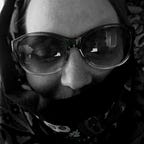Anthroposophy and The Waldorf Method
Education is at the heart of my passions in life. I love to learn new things and strive to be a better human. But sometimes stretching our brain to understand something from a different point of view can feel like it’s too much. The challenge to escape our comfort zone can be intimidating.
In one of my previous articles, Public Schools and Education: Why Teaching for High Achievement Doesn’t Work in the Real World, I ask “So, how does education need to change to be more productive?” I believe I have now found an answer.
In Ronald E. Koetzsch’s The Parents’ Guide to Alternatives in Education, “Steiner (1861–1925) was an important figure in European cultural life. For many years he was head of the Theosophical Society in Germany, and in 1913 he founded a spiritual and cultural movement called Anthroposophy — ‘knowledge of the true nature of the human being’.”
I recently read Lia Tummer’s book Rudolf Steiner & Anthroposophy For Beginners and was delighted to find an educational philosophy that aligns with my own.
Tummer gives historical significance of what Rudolf Steiner’s early childhood in Austria was like, and how his writings and lectures became known as The Waldorf Method. “The task of the Waldorf teacher is to encourage learning through love and enthusiasm. Awaken a student from inside, without indoctrinating him intellectually from the outside: to educate him as a human being is more important than to instill knowledge in him.” (Tummer, p. 134)
“Education as an art.”
In my observations of Waldorf Schooling, I can attest that “a living relationship with art transforms everyday life and creates a reserve of strength in modern man,” (Tummer, p. 136). Children learn weaving, spinning, knitting, sewing, bookbinding, basket/paper making, and working with wax, clay, leather, wood, copper. In Grade 3, they till soil, plant wheat, and harvest it by hand, making it into bread. They learn practical life skills and connect with natural resources.
“If educational effectiveness is to rely more on the personality of the teacher than in any educational programme then the teacher must always be willing to continue to form his own individuality, to continue to learn from life, from the children,” (Tummer, p.131).
I dug deeper, and checked out Understanding Waldorf Education: Teaching from the Inside Out by Jack Petrash. He states “The best education is one that always expects children to be active thinkers and asks them to use their imagination to produce assignments that show originality and effort, not just a recapitulation of facts,” (p.16).
Petrash goes on to say “Waldorf schools are concerned with the development of the whole child, both the inner aspects that are more qualitative and the outer aspects that are more quantifiable.”
“The intensification in the use of standardized tests as means of assessing children’s educational progress is problematic by Waldorf Standards because test scores generally present an incomplete picture of students’ abilities.”
It is my belief that Waldorf Education helps develop our students’ practical life skills with a range of knowledge, and well-rounded understanding of self and society. Making a more wholesome humanity.
